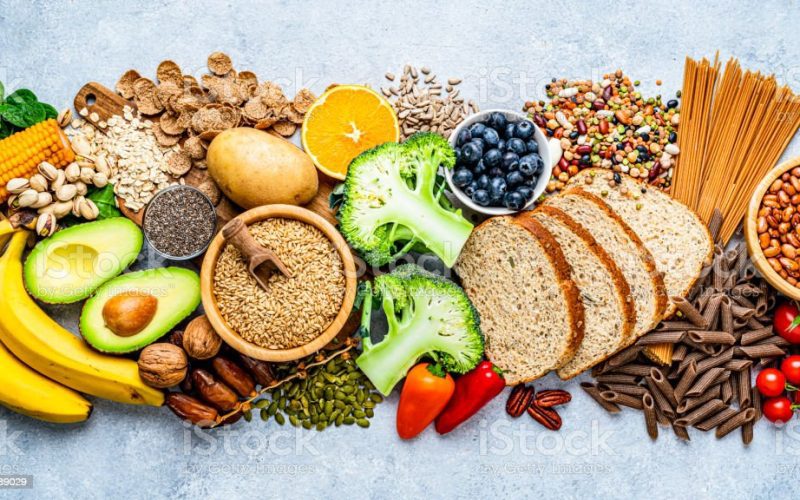Are you struggling to maintain a healthy diet and wondering why? The answer may lie in the amount of food you are consuming. Portion control is an essential aspect of achieving a balanced diet, yet it often gets overlooked or misunderstood. By controlling your portions, you can improve your eating habits, lose weight, and feel better overall. In this blog post, we will delve into what portion control is and its importance for maintaining a healthy lifestyle. We’ll also provide some tips on how to achieve portion control and share some delicious recipes for meals that are perfectly portioned!
What is portion control?
Portion control is the practice of eating a specific amount of food to maintain or reduce your calorie intake. It involves being mindful of how much you eat and listening to your body’s hunger cues.
The recommended portion sizes can vary depending on factors such as age, gender, weight, activity level, and overall health status. However, generally speaking, portion control means consuming an appropriate serving size that provides adequate nutrients without overeating.
One essential aspect of portion control is avoiding mindless eating habits. For instance, munching while watching TV or snacking out of boredom can cause you to lose track of the amount consumed which may lead to overeating.
It’s important not only to consider what you’re eating but also how much you’re consuming in one sitting. By practicing portion control regularly and sticking with it as part of a healthy lifestyle plan will make this habit more natural and sustainable for long-term success!
Why is portion control important?
Portion control is an essential aspect of achieving a healthy diet. It involves regulating the amount of food you eat during meals and snacks to ensure that you consume the right quantity of nutrients your body needs.
One significant reason why portion control matters is that it helps prevent overeating, which can lead to weight gain and obesity. When we eat larger portions than our bodies require, excess calories are stored as fat in our bodies, leading to a gradual increase in weight over time.
Moreover, portion control ensures that we get adequate nutrition from all food groups without consuming too much or too little of any nutrient. Eating in moderation helps us maintain a healthy balance between carbohydrates, proteins, fiber, vitamins and minerals – all crucial for optimal health.
Another benefit of portion control is its impact on digestion. Eating smaller meals at regular intervals promotes better digestion while reducing bloating and discomfort after eating.
Practicing portion control has numerous benefits for overall health and well-being. By regulating how much we eat per meal or snack, we can manage our calorie intake more effectively while ensuring proper nutrition for our bodies’ needs.
How to achieve portion control
Achieving portion control can be a challenge, especially if you’re used to eating larger portions. However, there are several strategies that can help you achieve portion control and maintain a healthy diet.
Firstly, start by measuring your food. Use measuring cups or a food scale to measure out your servings instead of relying on guesswork or eyeballing it. This will give you a better idea of what an appropriate serving size should look like.
Another useful tip is to use smaller plates and bowls. Using smaller dishes helps create the illusion of a fuller plate while also reducing the amount of food you consume.
It’s also essential to pay attention to your body’s hunger cues. Eat slowly and stop when you feel full, rather than continuing until your plate is clean or finishing off large portions because they’re there.
Planning ahead for meals can make it easier to practice portion control as well. By preparing meals in advance, it’s possible to ensure that each meal contains the right amount of nutrients in proper proportions without overeating.
Don’t forget about snacking! It’s important to choose healthy snacks and keep them pre-portioned so that you don’t end up consuming more than intended.
By following these tips consistently with discipline, achieving portion control will become habitual overtime making maintaining healthier diets easier in the long run!
Recipes for portion controlled meals
One of the biggest challenges in achieving portion control is determining how much food to eat at each meal. To help you meet this challenge, we’ve compiled a list of recipes for portion controlled meals that are healthy and flavorful.
For breakfast, try making overnight oats with yogurt and fruit. This recipe allows you to customize your toppings, while still controlling your calorie intake. Another great option is an egg white omelet filled with veggies like spinach and bell peppers.
For lunch or dinner, grilled chicken paired with roasted vegetables is a delicious way to stay on track with portion control. You can also try making a stir-fry using lean protein like shrimp or tofu, along with plenty of vegetables and whole grains like brown rice.
Snacks are also important when it comes to portion control. Try snacking on apple slices paired with almond butter or sliced cucumbers dipped in hummus for a satisfying snack that won’t throw off your overall caloric intake.
By incorporating these recipes into your meal planning routine, you’ll be able to more easily achieve portion control without sacrificing flavor or satisfaction at meal times!
Conclusion
Portion control is an essential aspect of achieving and maintaining a healthy diet. By monitoring your food intake and controlling your portions, you can ensure that you are consuming the right amount of nutrients without overeating. Portion control also helps to reduce calorie intake, leading to weight loss or weight management.
Remember that portion control does not mean depriving yourself of foods you love. It simply means being mindful of how much you eat and choosing healthier options whenever possible. With the tips provided in this article, incorporating portion control into your daily routine should be easy and manageable.
Try experimenting with different recipes for portion-controlled meals to keep things interesting and enjoyable while still maintaining a healthy diet. By making small changes in your eating habits, you can achieve long-term results towards living a healthier lifestyle!











